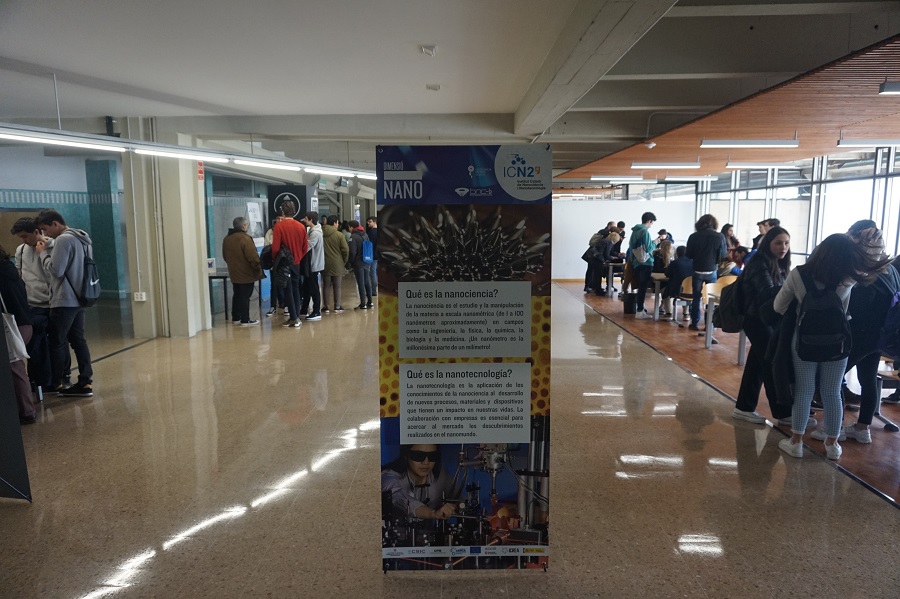This is a programme organised by the Autonomous University of Barcelona to show different topics of physics to Batxillerat students. Last Saturday, the ICN2 Marketing and Communication Department collaborated in it by preparing a set of activities related to the nanoscale.

Dissabtes de la Física is an initiative to popularise physics promoted by the Autonomous University of Barcelona. It consists of a series of conferences held on 5 consecutive Saturdays, followed by visits to laboratories or other kinds of activity.
The ICN2 has participated in this programme providing contents for the second part of the session held last Saturday. After an interesting talk by Dr Garcia-Orellana entitled “Chernobyl: from nuclear disaster to tourist attraction”, the students could enjoy a set of activities involving different nano-related objects or experiments.
As there were more than 120 students, they divided into groups of 12-15 people, and each group went to a table with a different activity. In every case, the group had to read a sheet with the basic information on what to do, and then answer a brief online test using their mobile phones. After 5 minutes, they changed to the next table, and they continued this dynamic until they completed the 9 proposed activities. During this journey, they could observe and experiment with ferrofluid, lab-on-a-chip, encapsulation, nitinol, superhydrophobic surfaces, brain-computer interfaces, etc.
After all the activities were completed, the students were driven back to the conference room. There, ICN2’s Head of Marketing and Communication Àlex Argemí and Communication Officer Francisco J. Paños showed the results of the test and commented on the role of ICN2 in the topic addressed by each question. The students were genuinely interested and ended up asking a lot of questions related to science in a broad sense: the science profession, its funding, the tech transfer process, scientific concepts and applications… With no doubt, the students went back home with new insights and thoughts about science and physics in general, and nanoscience and nanotechnology in particular.

